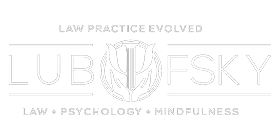Through evolution, as an important means of survival, it was often critical when faced with challenges in meeting our basic needs that we were able to identify a cause in the environment that we could then act upon to remove the current obstacle. In many of these primordial situations, if one were to just do nothing, he or she could be physically attacked by a hostile adversary or animal posing a direct threat to survival.
Thus, from an evolutionary psychology standpoint, it makes sense that he human ability to find external causes for difficult situations was critical for survival of the species.
As with many of our more ingrained coping strategies, however, our strong tendency towards identifying environmental factors as causes of challenging situations has become strongly habitual. In contemporary society, we are seldom faced with immediate threats to our physical survival. Nevertheless, when faced with difficult situations that prompt anxiety or fear, our conditioning often looks towards external causes that we may come to believe caused our current difficulties.
If this conditioned response mode is not met with a threshold of consciousness (i.e., grounding in present-moment experience), one can quickly become absorbed and seriously distracted with thought-driven stories about how this person or that person caused or brought about the threatening situation. This tendency can soon lead to outward expressions of anger, blame, etc. as if these expressions might somehow alleviate the challenging situation. In the process, however, one will become increasingly disconnected from present-moment experience and come to experience deeper unhappiness that, in itself, may prompt another cycle and layer of blame and attribution.
This type of cycle may be common within individuals involved in, or considering, legal action. Whether involved in divorce, an employment law dispute, an accident that has caused physical injury, criminal prosecution of some type, etc., it is not difficult to imagine one easily becoming enmeshed in this blame and attribution cycle. The extent to which this cycle gains momentum is the extent to which the individual is likely to overlook creative solutions to the current situation that might potentially serve to transform his or her life in truly positive ways. Instead, decisions are likely to be made as to how one might exact revenge or retribution against the person, institutions, etc. that are considered responsible for the current situation.
Holistic law practice works with clients to, among other things, help temper this ingrained tendency towards blame and attribution and instead heighten one’s connection to present-moment experience. It is within this heightened mindfulness that clients can identify optimal solutions to their challenging legal situations. To learn more, contact Holistic Attorney Michael Lubofsky at (415) 508-6263, or visit http://www.holistic-lawyer.com.
